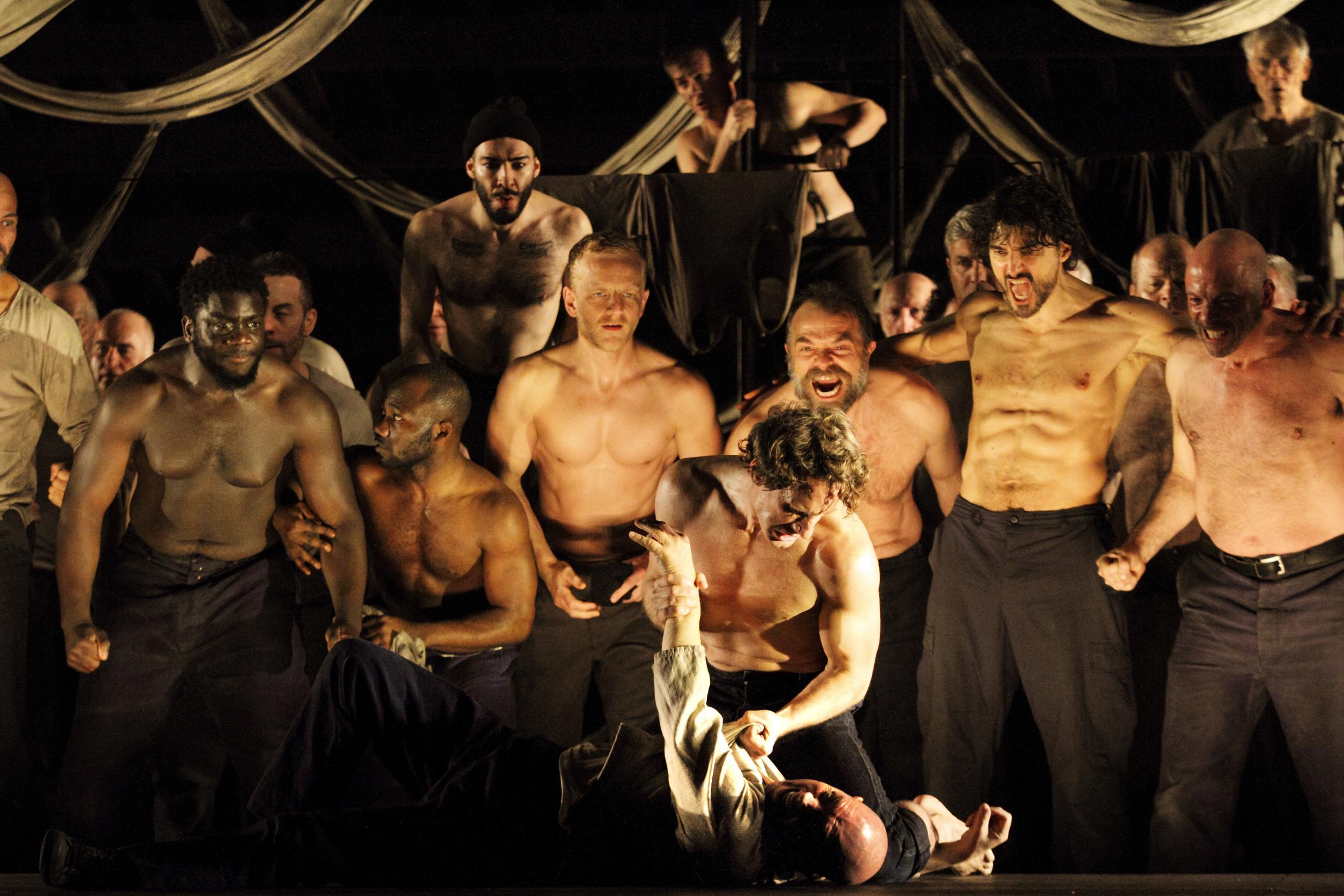Billy Budd review, Royal Opera House, London: Britten’s saga is infused with a desolated tenderness
Benjamin Britten’s score turns on the most delicately calibrated effects – from soft washes on low strings to acidicly bright woodwind volleys

Your support helps us to tell the story
From reproductive rights to climate change to Big Tech, The Independent is on the ground when the story is developing. Whether it's investigating the financials of Elon Musk's pro-Trump PAC or producing our latest documentary, 'The A Word', which shines a light on the American women fighting for reproductive rights, we know how important it is to parse out the facts from the messaging.
At such a critical moment in US history, we need reporters on the ground. Your donation allows us to keep sending journalists to speak to both sides of the story.
The Independent is trusted by Americans across the entire political spectrum. And unlike many other quality news outlets, we choose not to lock Americans out of our reporting and analysis with paywalls. We believe quality journalism should be available to everyone, paid for by those who can afford it.
Your support makes all the difference.On the face of it, Billy Budd, whose whole action unfolds within the timbered belly of an 18th-century man-o’-war, is a gift to any opera designer, if they want to accept it. The Glyndebourne production by Michael Grandage and Christopher Oram went serenely with the flow, to a point where we really did feel we were inside this hellhole, experiencing that dehumanising claustrophobia which for co-librettist EM Forster was the mainspring for the “blackness and sadness” of the story.
Deborah Warner’s production, which has now reached London after being acclaimed in Rome and Madrid, pays lip service to the nautical, but systematically negates it. Michael Levine’s ship is a forest of ropes arranged with such immaculate rectilinearity that it might be a gym; there’s a neat little trough of water through which performers rather pointlessly trudge; the giant platform which rises to reveal the world below decks purrs smoothly up and down; there’s no mess or clutter of any kind. Tastefully lit with a Japanese-like backdrop, this is a nowhere place we’ve visited many times before, courtesy of the European avant-garde. It’s also set in a nowhere time, with guards like present-day American prison warders, officers’ uniforms from the Fifties, and the references to 1797 retained.
The 60-man chorus is boosted by 30 non-singing actors, so choreographer Kim Brandstrup has his hands very full. But the muscular denizens of his nether world don’t move like sailors: they move like singers trying to be dancers, and the showiest piece of choreography, as the ship prepares for battle, has no hint of dirt, danger, or excitement. As the Marechal said of the Brits in Crimea: C’est magnifique, mais ce n’est pas la guerre. It’s all too clinical.
Luckily, however, we have a dream cast, and in Ivor Bolton a conductor who knows exactly how to support the drama. Benjamin Britten’s score turns on the most delicately calibrated effects – from soft washes on low strings to acidicly bright woodwind volleys, with a sad offstage male-voice lament threaded through – and Bolton’s tempi are sensitive to every fluctuation in mood and atmosphere.
And in the South African tenor Jacques Imbrailo we have the definitive Billy – he’s sung this part so often he virtually owns it. His autistic character moves from being one of the lads to becoming a transfigured Christ, darkening and enriching his tone as he embraces his fate in his piteous farewell aria (though there’s no Goya-like horror about the way Warner has him dispatched).
Toby Spence would also have made a fine Billy, and he’s not a natural fit for Captain Vere, but his singing has his trademark sweet intensity, and he communicates his agonised remorse as much through his body as through his voice. Brindley Sherratt’s Claggart is also definitive, dominating the stage with his malign presence, and drawing us into his tormented plan to destroy Billy. Among the minor characters Clive Bayley’s Dansker and Sam Furness’s Novice – broken by a flogging, then turning into Billy’s betraying Judas – are vividly portrayed. The chorus are superb, particularly in the near-mutiny with which the work ends.
Warner’s principal achievement is to infuse the opera with a desolated tenderness, and not just among the men below decks. She underlines the kinship of sympathy between Billy and Vere, and the kinship on a different level between Vere and Claggart, both of whom – for different reasons – kill the thing they love.
Until 10 May
Join our commenting forum
Join thought-provoking conversations, follow other Independent readers and see their replies
Comments